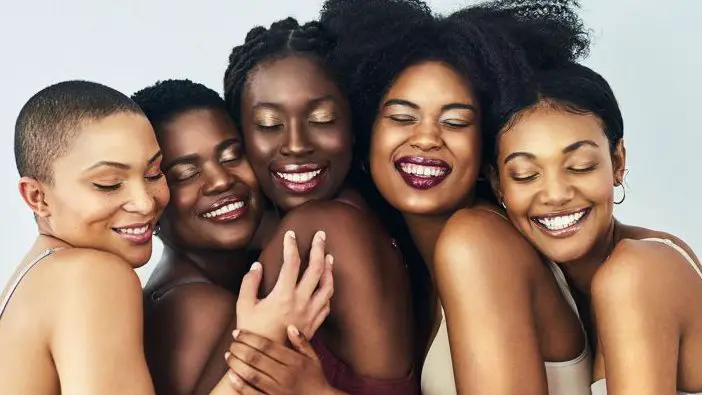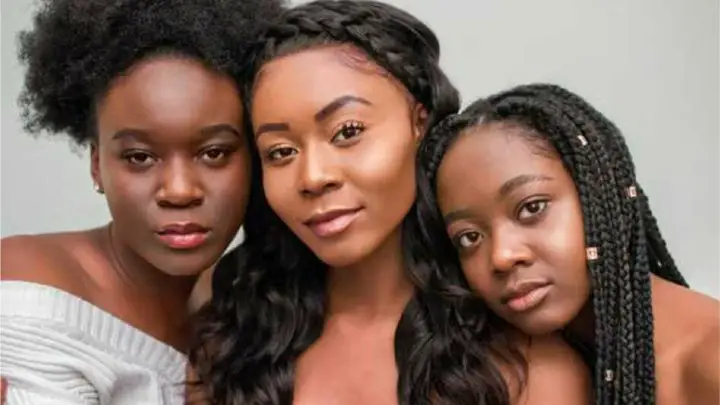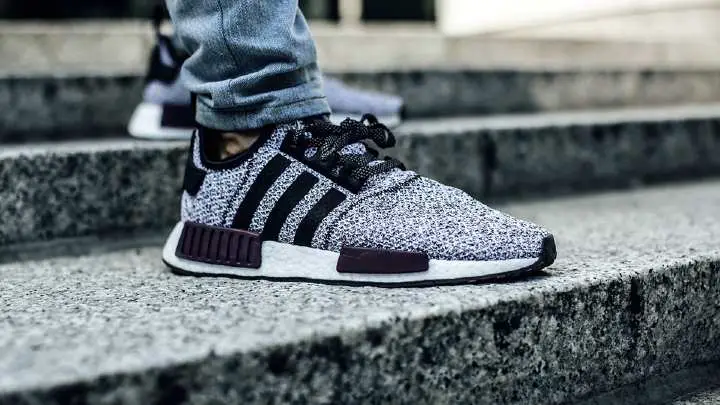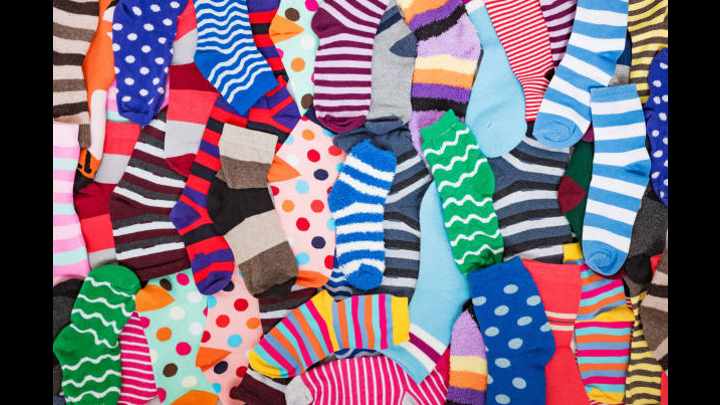There are varieties of skin tones. Most shades are an ID to your race and ethnic heritage. Of these colors are the melanin-rich shades – brown skin and dark skin.
These shades have been mired in ambiguity because there are trending debates that state there is a clear difference or none between brown skin and dark skin.
Some people use the shades to alternatively describe the tanned or deeper or tanned skin tone of any race, while others refer to the black skin of African and African American races.
With Beyoncé’s hit song, Brown Skin Girl (which was specifically tailored for the black race), the argument became more profound between brown skin vs dark skin.
If you want to know the similarities and differences between brown skin vs dark skin, you have to start with what they are. Whether it’s to pick better makeup products or just to know where you fit in the skin shade spectrum, you can read it all here.
Skin Shades
Skin shades used to fall under light skin and dark/black skin. These two classifications made it hard for in-between shades to get the preferred skin complexion for beauty – especially makeup – products.
What’s worse, while colorism was at its peak – segregating darker shades of skin and the societal drive to fall into the lighter category – the need to differentiate skin color had a negative connotation for dark skin color.
However, awareness and sensitization are becoming louder and louder on the need to understand that skin color is more or less a social construct that does not necessarily define character.
Nonetheless, to understand skin color, there are six major color categories you can identify with:
- Extremely fair
- Fair
- Medium
- Olive
- Brown
- Black/Nubian
These categories are generalized complexion. They have subcategories of skin colors, expanding the spectrum more.
Brown skin color
Brown skin color is a shade of color that is between olive and black skin. The skin shade is one of the widest color ranges because it goes from light brown skin to dark brown skin complexions.
People with these color shades tan easily and have rich melanin color. You can find people with this color category in South Asia, the Middle East, Europe, Americas, Africa, Africans in Diaspora, and Mixed races.
Also, they have significant features – their hair type – that shows their ethnic background. Their hair type usually falls between type 2C hair to type 4A hair color. However, this can change based on hereditary genes.
SEE: Best Hair Color for Brown Skin And Its Unique Shades
Dark skin
Dark skin is often confused for brown skin or black skin. While you can use dark skin interchangeably with black skin, there are variations.
Dark skin is a skin complexion rich in melanin. It describes a skin color with rich melanin, whether natural (gene) or intensified with exposure to the sun. Therefore, when you describe dark skin, you are talking about the melanin-rich skin, whatever the race.
However, people with dark skin color are more with the olive, brown, and Nubian skin shades. That’s why black skin is also referred to as dark skin.
SEE: Best Summer Nail Colors Ideas to Brighten Your Dark Skin
Are brown skin and dark skin the same?

Brown skin and dark skin are quite different. While these skin colors are used to describe a skin complexion with a deeper color, they do not mean the same thing conceptually.
Human skin color has different classifications. There are colors based on race and melanin production. They are both skin concepts that can exist within the other. Brown skin can have dark skin, and also dark skin complexion shades can consist of brown-skinned people.
Nonetheless, dark skin can mean people with brown or black skin. How it’s used in modern times overlaps with dark skin being people with brown or black skin shades.
Difference between brown skin and dark skin
Brown skin doesn’t belong to a race. The skin tone can be light to dark brown skin, depending on the skin shade. That is where dark skin comes into play. It means the melanin pigment of the skin.
However, people with dark skin can classify under a race. That’s because they have more melanin-rich skin tones than other races.
People with black skin produce more melanin; thereby, having a darker hue means you have dark skin. This also includes light skin with much darker hues. Therefore, brown skin describes people of different races with brown skin color that tans easily.
Meanwhile, dark skin refers to people whose skins easily produce melanin (hormones in charge of creating pigment). This dark skin is also a construct that can mean anything based on region and how it is used there.
Furthermore, while dark skin may mean people with deep brown or black skin shades, the major point is based on the shade of the skin. Therefore, you have light brown skin and dark brown skin, then deep dark skin (Nubian skin).
Additionally, dark skin goes beyond skin pigmentation. It alludes to race, culture, and genes. Meanwhile, brown skin is not necessarily shallow but refers to a deeper shade with tanning skin.
However, these two are often used interchangeably (especially when referring to the black skin category in the skin shade spectrum).
SEE: Can You Change Your Skin Color From Dark To Light?
Similarities between brown skin and dark skin
They both refer to people with richer skin color. The colors are not on the extremely fair and olive skin. Also, the skin tans easily; however, it may show depending on the shade or tone.
Light skin vs brown skin vs dark skin
There is a difference between these three. However, this depends on how you use them. Light skin can mean skin on the lighter with little to no melanin. On the other hand, brown has a deeper hue that ranges from olive to brown-chocolatey skin.
Meanwhile, dark skin describes skin with richer, deeper dark/black shades. They range from dark brown skin color to black skin.
Brown skin can also be light brown or dark brown, depending on where the skin color tilts in the complexion spectrum; it can be within these ranges.
SEE: What’s Your Light Brown Skin Tone?
FAQs
Is brown skin tan skin?
Brown skin doesn’t always mean tan skin. However, it’s easy for brown skin to tan naturally because melanin production is faster.
If you have different shades of brown without exposing or tanning, you wouldn’t have the golden sun reflection on your skin.
SEE: Your Best Form of Protection Against the Sun Is Sunscreen
Is dark skin tan skin?
Dark skin doesn’t mean tan skin. For extremely fair to white skin with a dark tone, it could mean regular exposure to the sun. However, the darker and farther your skin is from your original color equals how exposed you are to the sun.
Can brown skin be called dark skin?
Yes, brown skin can be called dark skin. As mentioned, these two concepts are used interchangeably depending on what part of the world you are. Also, you can have a dark skin tone without brown skin. It all depends on connotations and use.
Conclusion
Brown skin and dark skin are not the same, even though they are often used interchangeably. Brown skin is a skin color that often tans easily and is rich in melanin. It has ranges starting from light to really dark. That is where it gets confusing.
Meanwhile, dark skin is skin rich in melanin or has overproduced melanin. It can be of any skin tone. Nonetheless, dark skin is usually interchanged for the black race with dark brown or Nubian skin shades.
In all, how you use the two in context is what matters. No matter what you refer to as your skin shade, loving it as it is is the best form of skin care.
Thanks for reading.
Did you find this article helpful? You can read more skin guides here on Africana Fashion.







